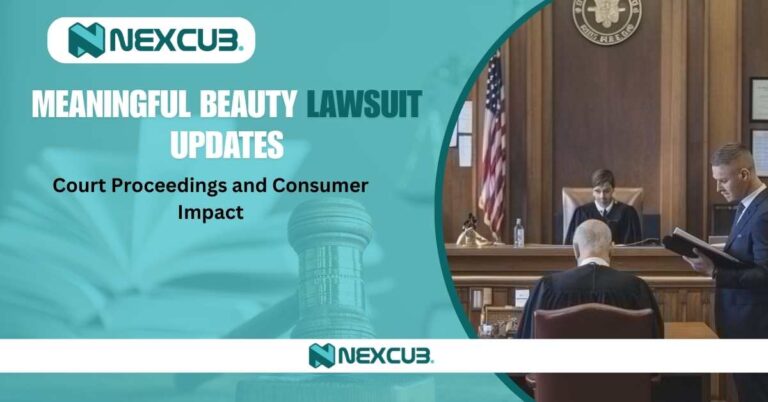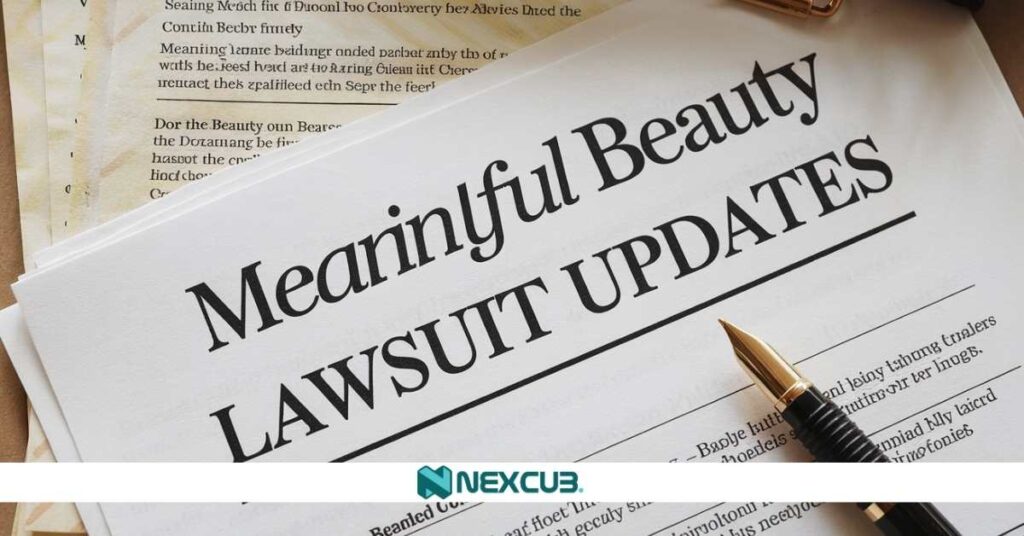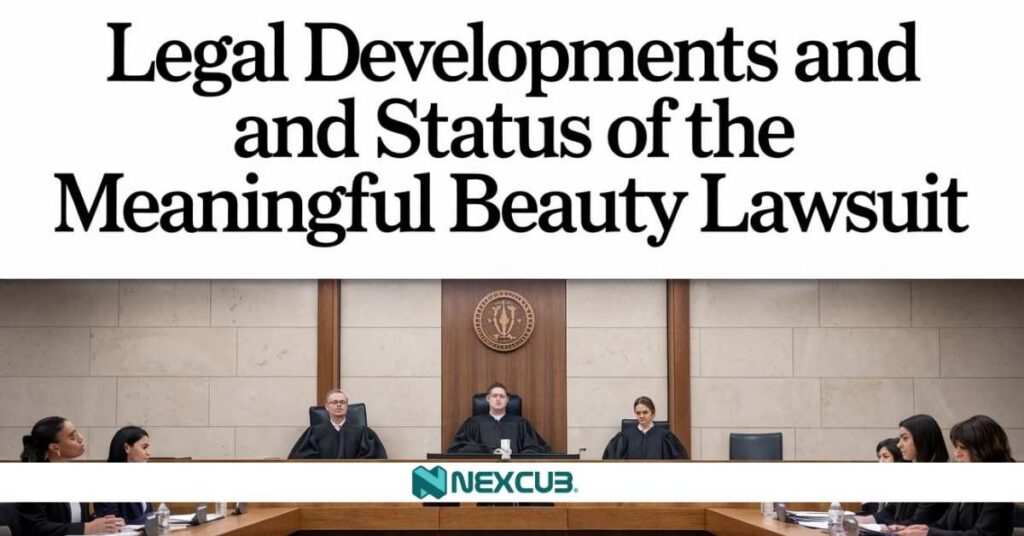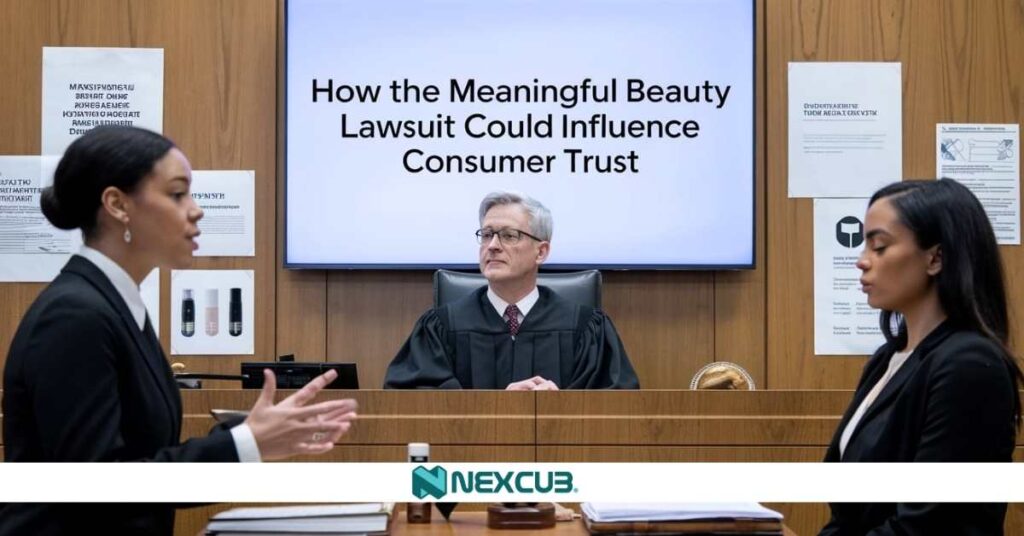Our Location
304 North Cardinal St.
Dorchester Center, MA 02124

The Meaningful Beauty lawsuit has drawn attention to claims of false advertising and hidden fees in Cindy Crawford’s skincare line. Customers allege the products didn’t deliver promised results, sparking legal action. This case raises questions about trust in celebrity endorsements and truth in marketing.
At the heart of the lawsuit are allegations of deceptive marketing and billing practices. Plaintiffs argue the products fell short of advertised anti-aging effects. What does this mean for the beauty industry and consumer trust? Let’s unpack the details.
Meaningful Beauty is a skincare brand co-created by Cindy Crawford, inspired by French anti-aging secrets. The products gained popularity for their promises of youthful, radiant skin. Over time, questions arose about the brand’s claims, leading to scrutiny and legal challenges.
The Meaningful Beauty lawsuit accused the brand of misleading advertising and questionable marketing practices. Here are the main allegations:

The brand was criticized for making bold promises about anti-aging effects without solid proof. Many consumers believed they would see dramatic results but were disappointed when the products did not meet expectations.
Cindy Crawford’s involvement raised questions about the honesty of the brand’s claims. Her endorsements led some to assume the products were highly effective because of her personal usage, which added to consumer trust and expectations.
Customers reported difficulties with unexpected charges from subscription plans. The billing terms were often unclear, making it hard for consumers to cancel or get refunds.
One major concern was the absence of verified clinical evidence backing the product’s claims. Independent tests often did not support the advertised benefits, leading to further mistrust among buyers.

The court proceedings of the Meaningful Beauty lawsuit involved both sides presenting evidence. Plaintiffs highlighted customer experiences and independent lab findings. The defense argued that marketing was clear and truthful. The case saw multiple hearings before reaching a conclusion.
Some claims in the lawsuit were resolved through settlements. These settlements aimed to address consumer concerns without a full trial. Terms of these settlements were often confidential. The outcome varied for different parts of the case, affecting both parties’ positions.
The Meaningful Beauty lawsuit had a noticeable impact on consumers, making them more cautious about marketing claims. Shoppers began to question whether celebrity endorsements were enough proof of a product’s effectiveness. This shift encouraged consumers to seek more evidence and trusted reviews before making purchases.
The case also empowered buyers to demand better transparency from brands. With heightened awareness, consumers started to expect companies to back their claims with scientific proof. This change in attitude has made the beauty industry more accountable for the accuracy of its
Meaningful Beauty denied the allegations, claiming their marketing reflected the product’s capabilities accurately. They argued that the endorsements were based on personal experiences and not meant to mislead. The company emphasized that consumer satisfaction varied and depended on individual usage. They maintained that their advertising was truthful and compliant with regulations.
In response to the lawsuit, Meaningful Beauty took measures to enhance transparency. They began focusing on clearer and more detailed product descriptions. The brand started incorporating more customer testimonials and third-party verification. These steps aimed to rebuild trust and meet consumer expectations for honest advertising.
READ: White Oak Global Advisors Lawsuit Settlement
If the lawsuit resulted in financial penalties, Meaningful Beauty could face significant fines. These penalties would be aimed at addressing false advertising practices. The company might have to compensate affected consumers or pay damages. This could impact their revenue and brand reputation.
The lawsuit has set a precedent for the beauty industry, urging brands to be more truthful. It emphasized the importance of clear and honest marketing, especially for celebrity-endorsed products. Other beauty companies may now be more cautious in their advertising strategies. This case could lead to stricter regulations to protect consumers.
The lawsuit highlighted the need for stricter advertising rules in the skincare industry. Brands must ensure their claims are accurate and backed by evidence. This could lead to more regulations and clearer guidelines for marketing.
The case also brought attention to how subscription services are promoted. Consumers are now more aware of hidden fees and terms. This may push companies to be more transparent in their billing practices.

The Meaningful Beauty lawsuit has made consumers more cautious about product claims. People are now more likely to research products and read reviews before purchasing. This shift could lead to a higher demand for transparency in marketing.
With increased awareness, brands may face pressure to be honest and provide proof for their product promises. Consumers may expect more detailed information and clearer advertising. This change could help build a stronger trust between buyers and skincare brands.
Advertising played a major role in the Meaningful Beauty lawsuit, with celebrity endorsements being a key part of the issue. Cindy Crawford’s high-profile promotion set strong expectations about the product’s effectiveness.
The lawsuit argued that the advertising made exaggerated claims that were not backed by evidence. This led to questions about how accurate and honest beauty product marketing should be in the future.
The Meaningful Beauty lawsuit taught the beauty industry the importance of clear and truthful advertising. Brands must ensure their marketing claims are realistic and supported by evidence to maintain consumer trust.
Going forward, companies will need to be more transparent and cautious in their promotional strategies. This case shows that consumers expect honest information, which will drive stricter industry standards and greater accountability.
Canceling Meaningful Beauty can be challenging due to its subscription model, which may involve multiple steps or customer service contact.
Meaningful Beauty products are not typically available at Ulta and are mainly sold through the brand’s official website.
Cindy Crawford earns a portion of the profits from Meaningful Beauty, although exact earnings details are not publicly disclosed.
The monthly cost of Meaningful Beauty is around $90, depending on the specific products and subscription plan.
The Meaningful Beauty lawsuit involved allegations of false advertising and misleading claims about product effectiveness. Plaintiffs argued that Cindy Crawford’s endorsements misrepresented the anti-aging benefits of the skincare line.
The case highlighted the need for transparency in marketing and consumer protection. It also served as a wake-up call for the beauty industry to ensure accurate advertising and build consumer trust.